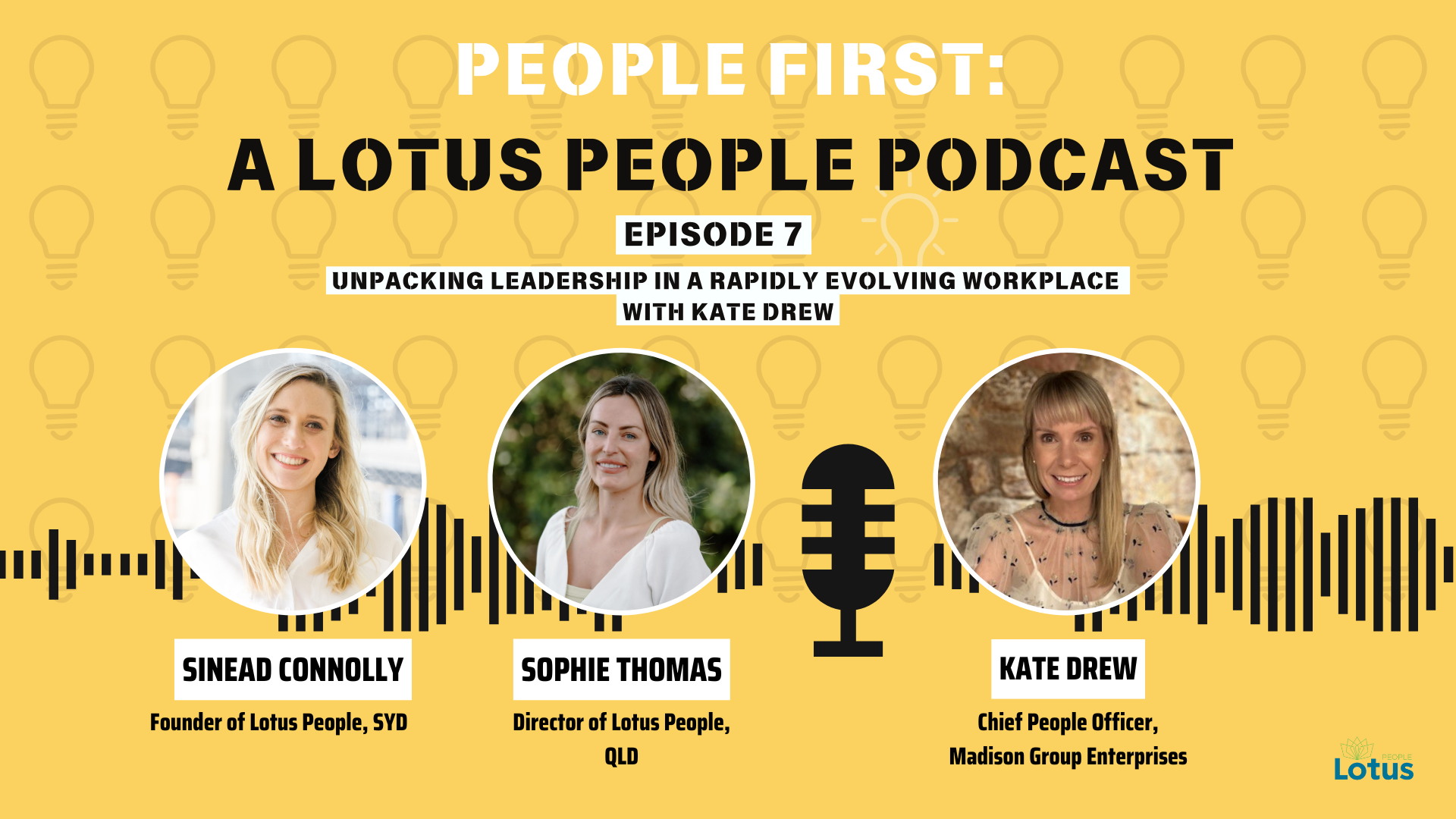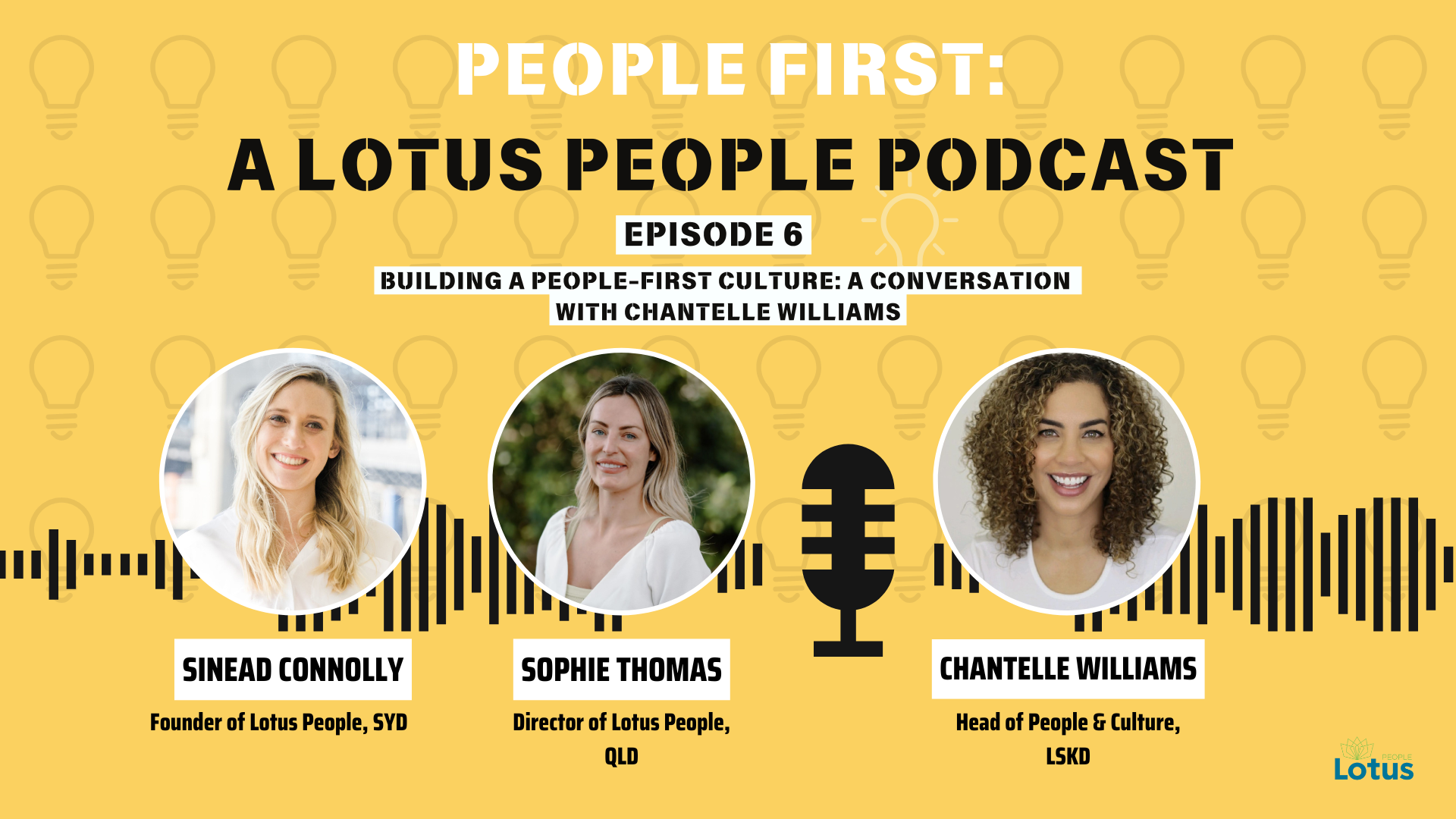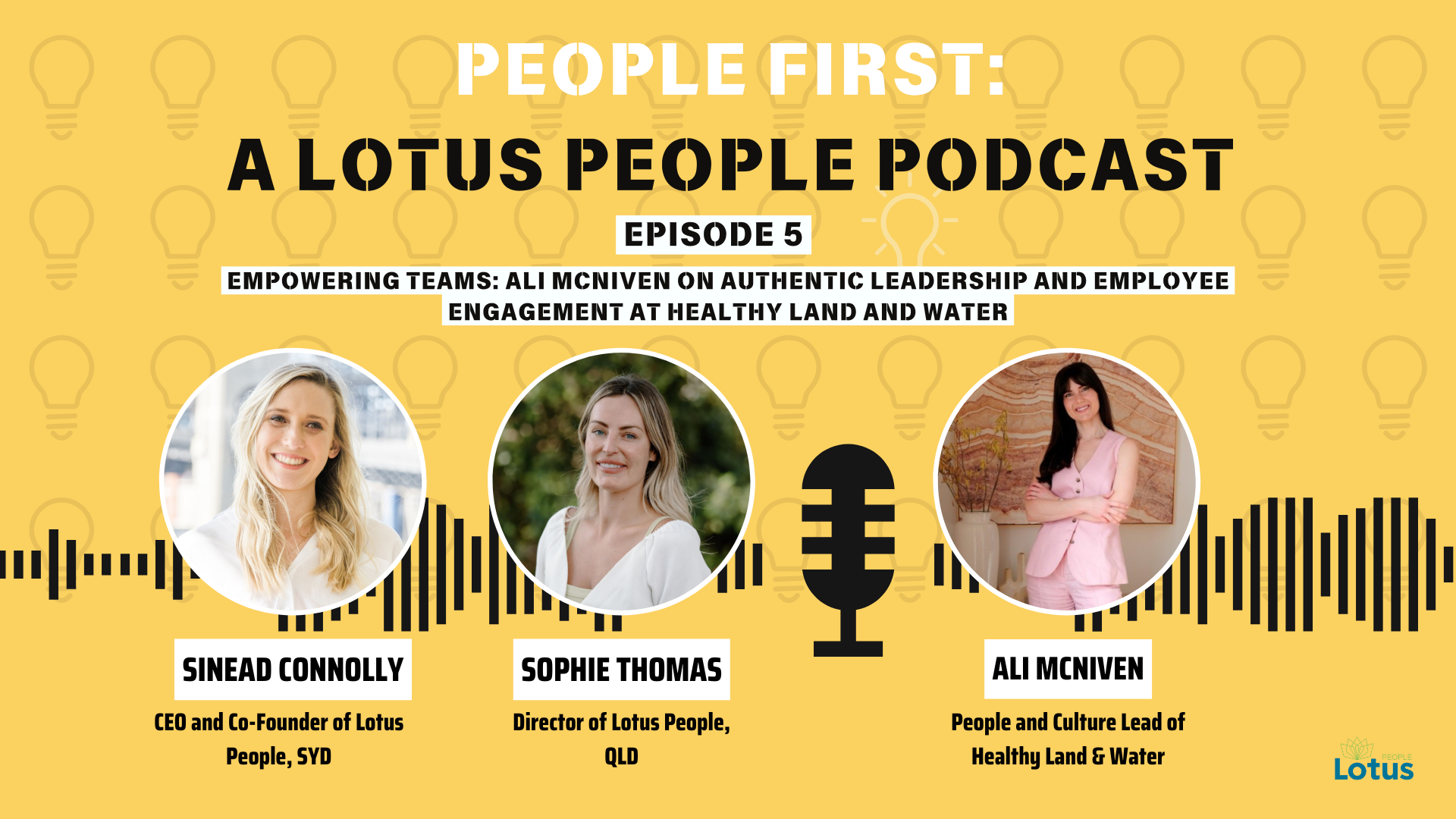4 Ways to Keep Your Employee’s Mental Health in Check

Why is mental health support so important in the workplace?
Research has shown that companies that promote mental health and support people both in their personal and professional goals are more likely to reduce absenteeism, increase productivity by as much as 12%, and strengthen company employee retention.
If the pandemic has shown us anything, it’s that the blend between work and life is as blurred as ever. Authentic and supportive leaders who support their teams’ mental health are those who will retain top talent in this market. At Lotus People, we believe that mental health and individual performance are two parts of the same equation and when combined, they make a healthy, happy, and thriving workplace.
With an ever-tightening employment market, in its most competitive state, it’s so crucial to ensure your people are happy in areas such as balance, flexibility, compensation, culture, and professional progression.
A key pillar for engagement and leadership, here are some things that you can do to support employee mental health;
1. Offer flexibility and be inclusive
One of the many things we can do is to offer employees a chance to work a hybrid model of flexibility, where possible. A key factor for job-seekers, flexibility is one of their top motivators when considering a new role.
2. Invest in Training
Be proactive in involving leaders, managers, and individual contributors to building a workplace with fewer burnouts and breakdowns. As mental health awareness in the workplace increases, it’s so important to have productive conversations about it to increase awareness, build community, and offer peer support.
You can lean on free training tools provided by the Black Dog Institute or invest in a mental health practitioner to run mental health training with the team to increase awareness.
3. Modify policies and practices
Promoting awareness about mental health and stress management should start with employers. Many leading businesses have created strong mental health policies including action plans, how to have difficult conversations, and outlining initiatives that support mental health awareness.
Having mental health days off, normalizing taking lunch breaks at work (you’d be surprised how many don’t do this), and having annual, quarterly, or even monthly mental health sessions to recap policies is a great start.
4. Relaxation spaces
Creating and maintaining dedicated, quiet spaces for relaxation activities give employees the chance to have breaks to de-stress, especially during busy periods. Some offices have meditation rooms, organized yoga and meditation, and a focus on pausing during the day.
All employees benefit when their peers and management support and promote good well-being and mental health. This gives everyone the opportunity to flourish personally and professionally while creating a workplace where the team is happy, engaged, and feels psychologically safe at work!
If you want to read more on employee retention, Lotus People have put together a talent Strategy Guide for 2022. Download it for free and gain more insights into the market today by clicking here:





